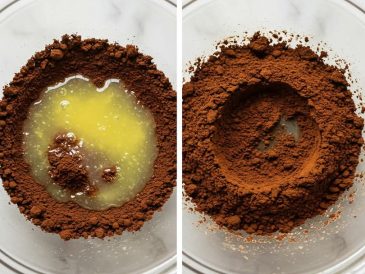Clove oil is one of those traditional remedies that has been used for centuries, especially in natural households, yet many people have never tried making it themselves. The good news? You can prepare your own clove oil at home with simple ingredients, no special equipment, and a little patience. What you end up with is a fragrant, potent, and surprisingly versatile oil that can be used for health, beauty, and even household purposes.

Below is a complete guide: how to make it step by step, how to use it safely, and what benefits it offers.
What Is Clove Oil?
Clove oil is an infused or essential-oil–style preparation made from dried clove buds. These buds contain natural compounds—especially eugenol—that give clove its strong aroma and its powerful health properties. The homemade version may not be as concentrated as a commercial essential oil, but it is gentler, safer for most uses, and still remarkably effective.
How to Make Homemade Clove Oil (EASY Method)
There are multiple ways to make clove oil, but this is the simplest and most traditional one. It uses heat infusion, which extracts the beneficial compounds without burning the cloves.
Ingredients Needed
- ½ cup whole cloves (dried)
- 1 cup carrier oil (olive oil, coconut oil, sweet almond oil, or jojoba oil)
- A clean glass jar with a lid
- A small pot or saucepan
Step-by-Step Instructions
1. Crush the cloves
Use a mortar and pestle or the back of a spoon to lightly crush the whole cloves.
You don’t need to pulverize them—just break them enough to release the oils inside.
2. Heat the carrier oil
Place the oil into a small saucepan. Heat it on the lowest possible setting.
The goal is to warm the oil, not to fry or boil it.
3. Add the crushed cloves
Once the oil is warm, add the cloves and stir gently.
4. Let them infuse
Allow the mixture to warm for 20–25 minutes, keeping the heat very low.
If the cloves begin bubbling or sizzling, the heat is too high.
5. Cool and strain
Turn off the heat, let the oil cool completely, then strain it through a fine cloth, coffee filter, or strainer.
6. Store properly
Pour the oil into a clean jar or bottle.
Store in a cool, dark place. Properly prepared homemade clove oil can last 6–12 months.
10 Powerful Benefits of Homemade Clove Oil
Clove oil is well known for its ability to soothe, disinfect, and relieve discomfort. Here are the most important benefits:
1. Natural Toothache Relief
Clove oil is famous for calming tooth pain. The eugenol inside acts as a natural anesthetic and antibacterial compound.
A small amount applied with a cotton swab can temporarily soothe discomfort until professional care is available.
2. Fights Oral Bacteria
Homemade clove oil can be used (highly diluted!) as part of a mouth rinse to help freshen breath and reduce harmful bacteria in the mouth.
3. Supports Digestion
When diluted and massaged onto the abdomen, clove oil may help relieve bloating, gas, and mild stomach discomfort due to its warming and carminative effects.
4. Helps Clear Congestion
The warming aroma can help ease nasal stuffiness. Adding a few drops to hot water for steam inhalation may help open the airways.
5. Natural Antifungal Properties
Clove oil is traditionally used to help fight fungal issues such as athlete’s foot or nail fungus.
Apply only when mixed with a carrier oil to avoid skin irritation.
6. Soothes Muscle and Joint Discomfort
The warming effect helps stimulate circulation.
Massaging diluted clove oil onto sore muscles may help ease stiffness.
7. Helps Repel Insects
Clove oil’s strong scent naturally repels mosquitoes, ants, and other insects.
You can add some to a spray bottle with water for a natural repellent.
8. Promotes Skin Health (When Diluted)
Clove oil can help reduce the appearance of small blemishes or acne when used sparingly.
It should always be diluted, as it is strong and can irritate the skin if applied directly.
9. Supports Hair and Scalp Health
A few drops added to hair oil can help stimulate the scalp, reduce dandruff, and support healthy hair growth.
10. Natural Air Freshener
Clove oil has a warm, comforting aroma.
You can mix a little of your homemade oil with water in a diffuser or potpourri to naturally freshen your home.
How to Use Homemade Clove Oil
Here are some of the safest and most common ways to use it:
For toothache
Apply a tiny amount (diluted with olive oil) on the gum using a cotton swab.
For steam inhalation
Add 2–3 drops to a bowl of hot water and breathe the steam.
For massage
Mix 5–10 drops with 1 tablespoon of carrier oil.
For skin or scalp
Use only a small amount mixed with another oil; never apply directly to skin.
Safety Notes and Disclaimer
- Clove oil is strong and can irritate the skin if used undiluted.
- Toothache relief is temporary; it does not replace a dentist visit.
- Not recommended for pregnant women without medical advice.
- People with liver issues should avoid heavy use of clove products, since eugenol is metabolized in the liver.
- Always perform a patch test before using it on the skin.
This article is for informational purposes only and should not replace professional medical guidance.Inspired by this? Share the article with your friends!





